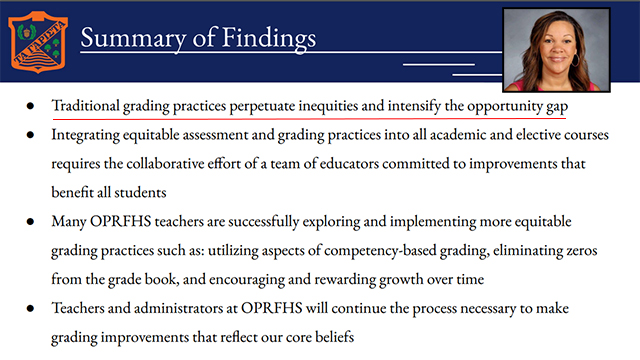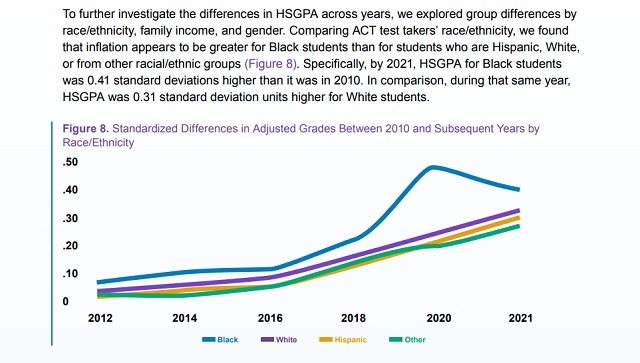Chicago High School to 'Implement Race-Based Grading System' to 'Equalize Test Scores Among Racial Groups'Chris MenahanInformationLiberation May. 31, 2022 |
Popular 
Sen. Hawley: Send National Guard to Crush Pro-Palestine Protests Like 'Eisenhower Sent the 101st to Little Rock'

Mistrial Declared in Case of Arizona Rancher Accused of Killing Migrant Trespasser

AP: 'Israeli Strikes on Gaza City of Rafah Kill 22, Mostly Children, as U.S. Advances Aid Package'

John Podhoretz Demands National Guard Be Sent Into Columbia U to Put Down Pro-Palestine Protests

House Passes $95B Foreign Aid Giveaway to Israel, Ukraine and Taiwan, Combined With TikTok Ban
  "Oak Park and River Forest High School administrators will require teachers next school year to adjust their classroom grading scales to account for the skin color or ethnicity of its students," West Cook News reports. "Oak Park and River Forest High School administrators will require teachers next school year to adjust their classroom grading scales to account for the skin color or ethnicity of its students," West Cook News reports.From West Cook News: School board members discussed the plan called "Transformative Education Professional Development & Grading" at a meeting on May 26, presented by Assistant Superintendent for Student Learning Laurie Fiorenza.The standardized testing company ACT earlier this month released a report documenting how endless grade inflation in American high schools could soon lead to every student being handed a 4.0.  "Comparing ACT test takers' race/ethnicity, we found that inflation appears to be greater for Black students than for students who are Hispanic, White, or from other racial/ethnic groups," ACT reported. "HSGPA is a highly unstandardized measure of achievement because it incorporates not only content mastery or performance on an assessment but also many other factors including effort, participation, and educators' personal impressions," ACT said. "In the college admissions context, this means that the 4.0 from one school may not indicate the same level of content mastery as a 4.0 from another school. This reduces the utility of HSGPA in evaluating college applicants." Is this what "white privilege" looks like? Follow InformationLiberation on Twitter, Facebook, Gab, Minds and Telegram. |



